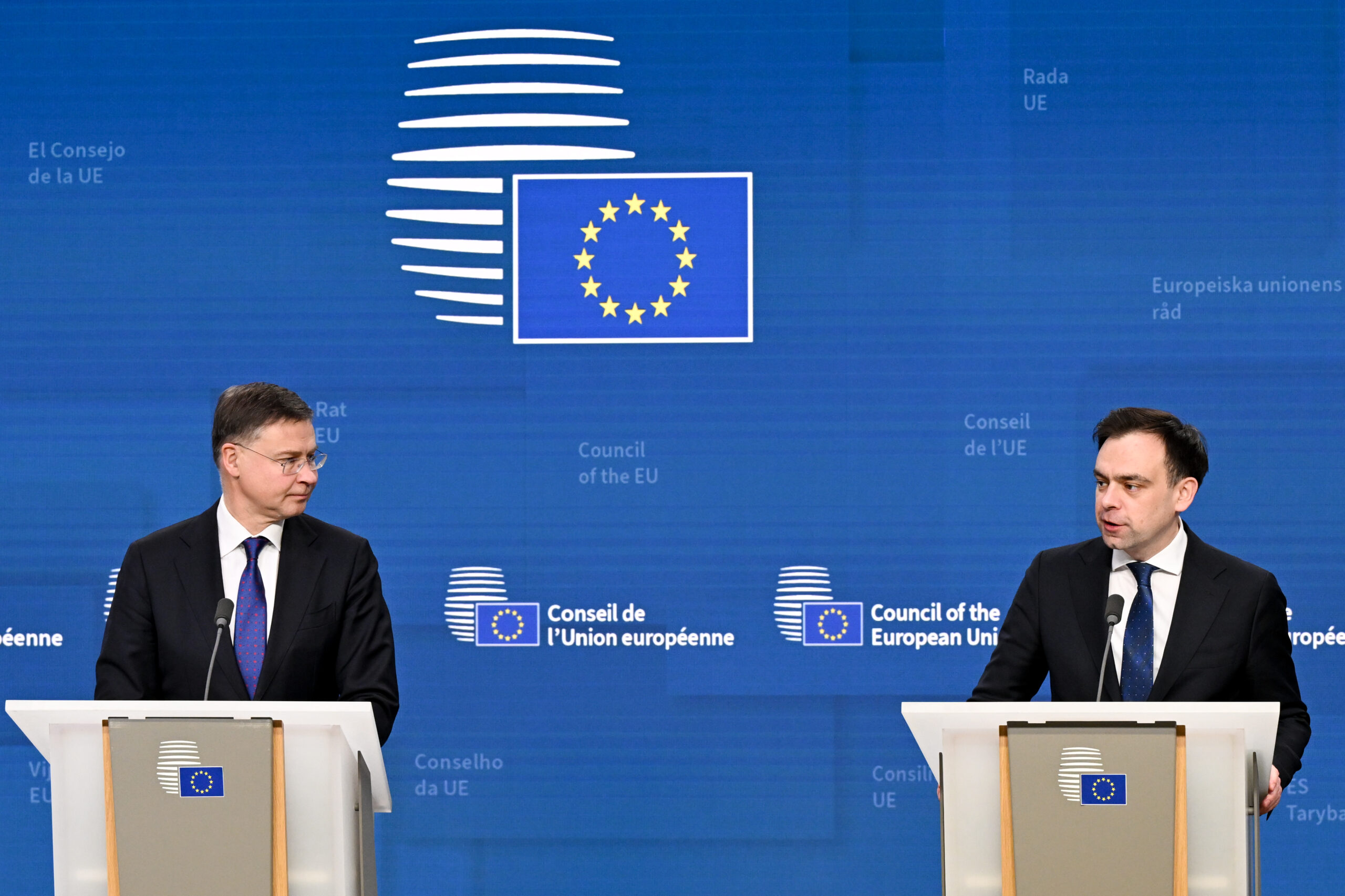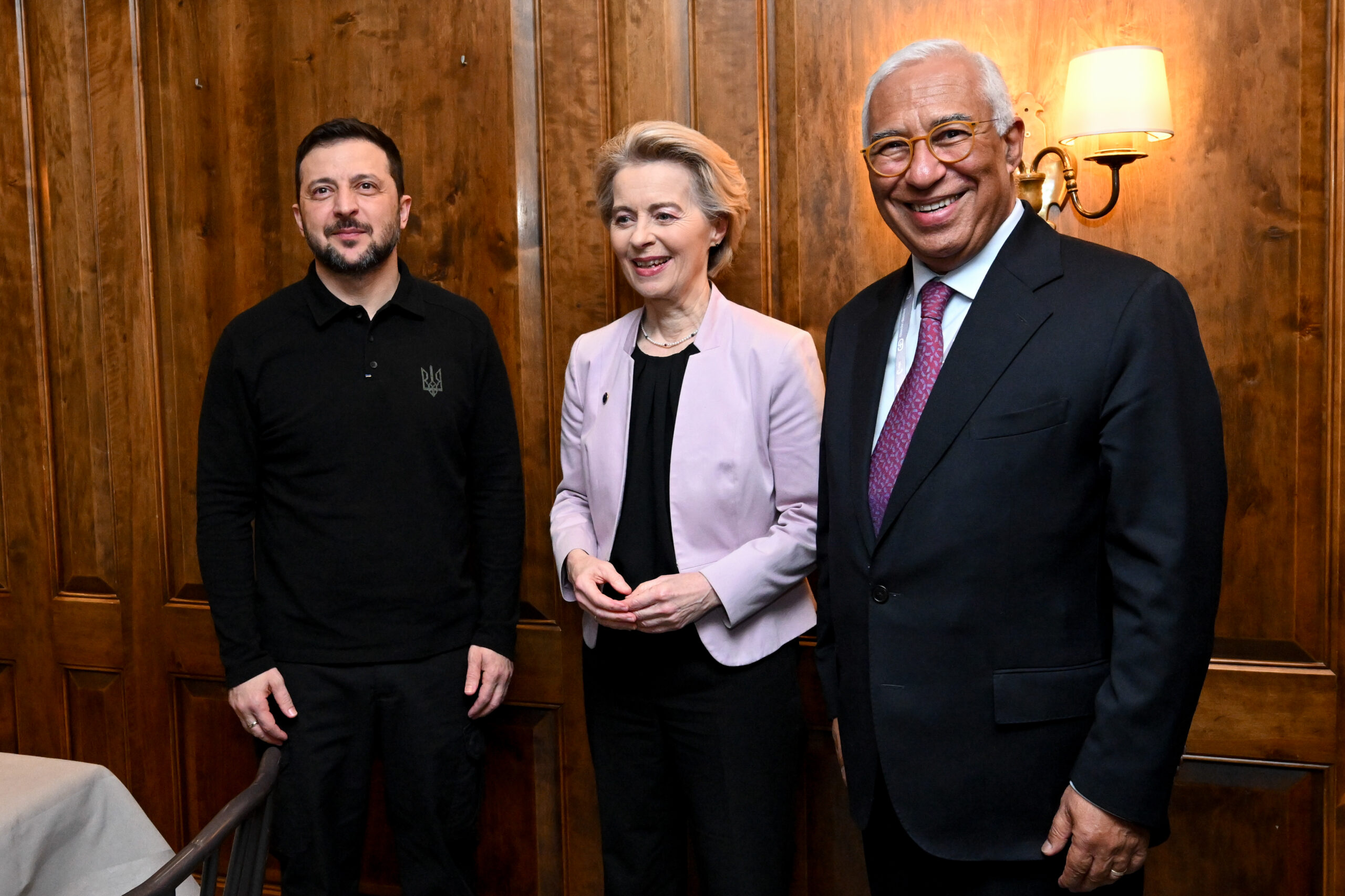Brussels – The European Union will adopt a new package of sanctions against Russia to mark the third year since the start of the large-scale invasion of Ukraine, which falls on Feb. 24. It will be the 16th and comes at a crucial moment for the fate of the conflict, with Russia and the United States now already sitting at the negotiating table. “Negotiations on the text are closed; now member states must accept or reject it,” European sources confirm. The diplomatic bodies of the 27 will address the item as early as tomorrow, but the green light is scheduled for Friday, February 21.
“It is imperative that it be adopted before the third anniversary of this brutal aggression against Ukraine,” Andrzej Domanski, finance minister of Poland—which holds the six-month presidency of the EU Council—said today (Feb. 18) at a press conference at the end of a meeting with his European counterparts. Even in the face of a rapidly changing situation, Brussels is sticking to its line: guaranteeing Kyiv a strong position in future negotiations with Moscow, weakening the latter with all means at its disposal. “We know that sanctions work, and we see more and more evidence that the Russian economy is not as strong as it would like to be perceived,” Domanski claimed.

It has been barely two months since the latest tranche of restrictive measures imposed on Russia and its supporting countries, namely China and North Korea. The fifteenth package, adopted last December 16, specifically targeted 52 ships of the ghost fleet with which the Kremlin circumvents Western restrictions on oil trade. But the EU also imposed a ban on entry to European soil and a freeze on assets held in the EU on two senior officials of Kim Jong-un’s regime. “Of course, every time we implement a new package, there are new attempts to try to evade those sanctions,” the Polish minister explained.
The new round of sanctions is expected to intensify the widespread fight against circumvention of the Russian crude oil embargo, hitting dozens of new vessels. As anticipated by the EU High Representative for Foreign Affairs, Kaja Kallas, at a meeting on Ukraine last Jan. 28, the package will include restrictions on video game equipment, such as Microsoft’s Xbox or Sony’s PlayStation, whose consoles could be used for warlike purposes, such as flying drones.

Volodymyr Zelensky, Ursula von der Leyen and Antonio Costa at the Munich Security Conference, 2/14/25
The president of the European Commission, Ursula von der Leyen, and the president of the European Council, António Costa, discussed with “particular emphasis” the strengthening of sanctions and the preparation of the 16th package with the Ukrainian premier, Volodymyr Zelensky, on the sidelines of the Conference on Security in Munich last weekend. “Ukraine expects that this will significantly limit Russia’s ability to continue financing the war,” Zelensky’s office said in a note.
All this while Russia’s Foreign Minister, Sergey Lavrov, at the end of the first day of talks with U.S. Secretary of State Marco Rubio, reported that the U.S. would be in favour of lifting sanctions imposed on Moscow for its invasion of Ukraine. “There is a strong interest in removing artificial barriers to the development of mutually beneficial economic cooperation,” Lavrov said. EU Economy Commissioner Valdis Dombrovskis immediately responded to the scenario suggested by Lavrov at the joint conference with Domanski. “I think it is very clear that with the moves of the current Trump administration, the EU will have to deal more with its own security issues, which also affects the sanctions policy,” the Latvian commissioner said.
English version by the Translation Service of Withub







